Books That Will Change Your Perspective On Life
As a literature student, books are a fundamental part of my degree and of my life. So much so, I plan on teaching English after having completed university. I believe that literature is such beautiful art and that every book holds so much meaning.
With that in mind, here are 6 books that have the power to change your perspective on life.
1. Matilda by Roald Dahl
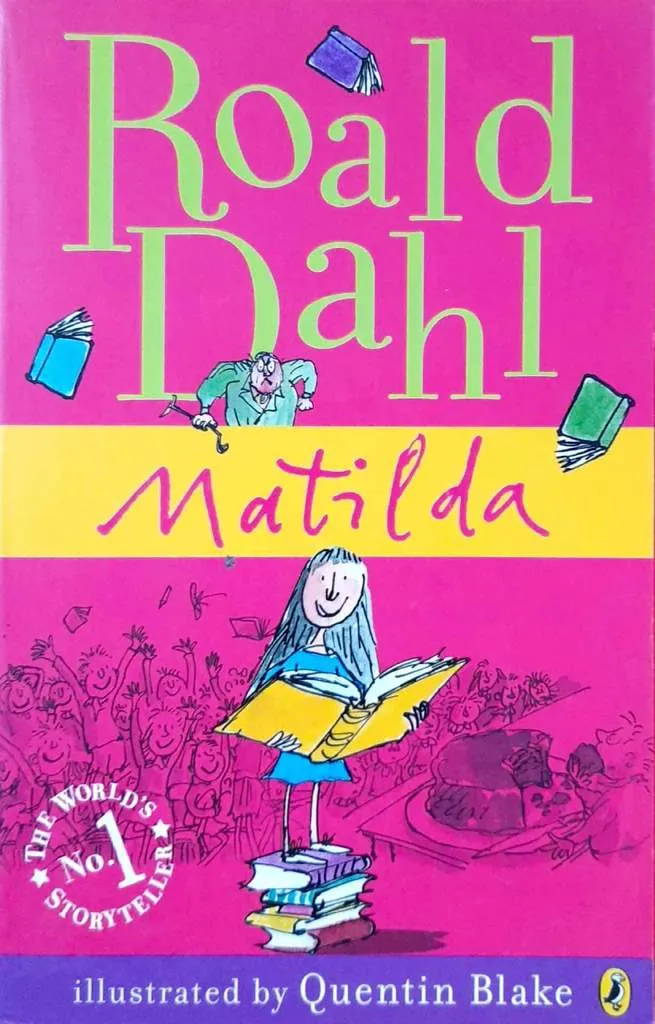
Yes! Matilda is a children’s book. But nonetheless, Roald Dahl ends his novel with such a prominent message: that the definition of family is not just biological relations. Dahl explores this through the use of protagonist Matilda’s relationships with other characters, specifically her parents and Miss Honey.
The love that Matilda and Miss Honey have for each other was stronger than what the Wormwoods could ever give her, despite the Wormwoods being her biological parents.
I really related to this, my parents are fantastic, I’m just incredibly lucky to also have friends who have become family to me too, big sister role models or “second mums” who I’m not related to biologically. Matilda taught me that those members of my family are not any less deserving of the “family” title because we do not have any blood ties; as long as the love is there, that’s all that matters.
This is so applicable to life, the lesson that family ties are not limited to biological relationships changes one’s perspective on the word “family”. The way Dahl explores family makes the term much more inclusive and recognizes that the traditional nuclear family is no longer the “ideal” for contemporary society, as Matilda thrived in a single-parent household under Miss Honey’s care and only suffered with Mr. and Mrs. Wormwood as her carers.
As well as this, Dahl also explores the importance of novels, and of reading. Matilda is a child of extraordinary intelligence, and her love and breadth of reading at such a young age demonstrate this. Not only that, but Dahl expertly creates the character to use books as escapism from her home life.
Her bedroom in a house where she is mistreated and unloved becomes a safe haven for her, all because of books. Books transport her into a different world, where there are no judgmental parents who do not value her, instead, she is following the stories of her favorite fictional characters and becomes immersed in their worlds.
Through the use of the character Matilda and her relationship with books, Dahl encourages readers and his young audience to pursue reading, by presenting it as beautiful escapism from a troublesome reality. Matilda reminds us that novels really are such a beautiful blessing to our world, and not to mention timeless! Children deserve to be blessed with them. Reading is not something that is ready to die out. Not now, hopefully not ever.
2. Much Ado About Nothing by William Shakespeare
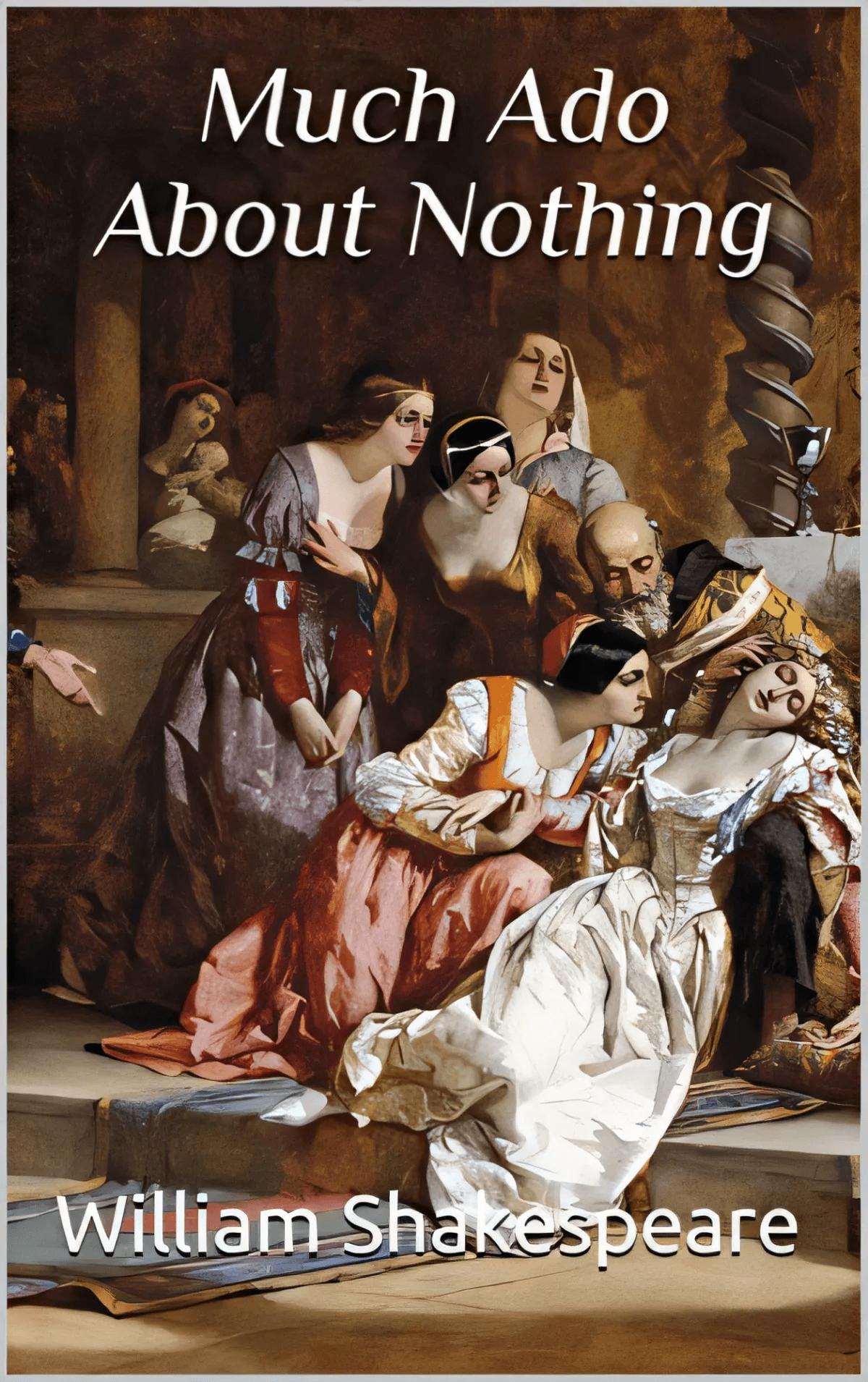
Especially as children and teenagers, reading Shakespeare is thought to be exceptionally difficult. But, from reading Much Ado About Nothing, this view can be changed, and it did so for me. It was my GCSE Shakespeare text and I found it to be a very accessible text, and the plot is easy to follow. The language is descriptive but not confusing, therefore providing adequate detail in an accessible way.
As well as being quite an easy read, this can open doors and increase confidence to go on reading other texts from many centuries ago, thus changing the perspective that older texts should be feared because of the language because they should not be and are easier to understand and enjoy than what is first presented.
Also, the story of Benedick and Beatrice’s love teaches us that there is only so long two can deny their love for each other, as love always wins. In essence, love trumps hate. Their resistance to admitting their love only makes it grow stronger, therefore, creating the ultimate relationship that everyone reading even in C21 is envious of.
In contrast to this, Claudio and Hero’s relationship teaches us that no matter how “suitable” a bachelor may be, it takes time to form that connection. Claudio’s lack of trust in Hero shows that perhaps they were not ready to marry so soon, as they do not know each other, as well as Benedick and Beatrice, do.
3. Measure for Measure by William Shakespeare
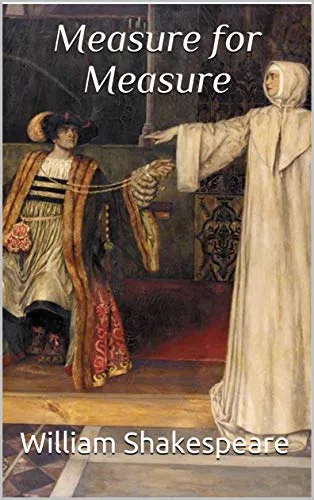
Another play by Shakespeare, Measure for Measure really did change my perspective on life; specifically, it changed my perspective on literature and, as an English student, literature is a big part of my life.
Measure for Measure is categorized as a tragi-comedy, meaning it combines elements of a Shakespearean tragedy with that of a comedy. I found this so intriguing because Shakespeare is known for his comedies which famously end in marriage, and his tragedies, which famously ended in death. As such, the concept of covering both in one play was alien to me, but it really worked.
This play has the power to make you both laugh and grieve, it can change your perspective on one of the most famous literary icons of all time, because this play isn’t as seemingly straightforward as the “happily ever after” or “everybody dies” endings of Shakespeare plays. Therefore, by changing your outlook on Shakespeare, to a literature lover, this play can as such change one's perspective on life as a whole.
4. Pride and Prejudice by Jane Austen
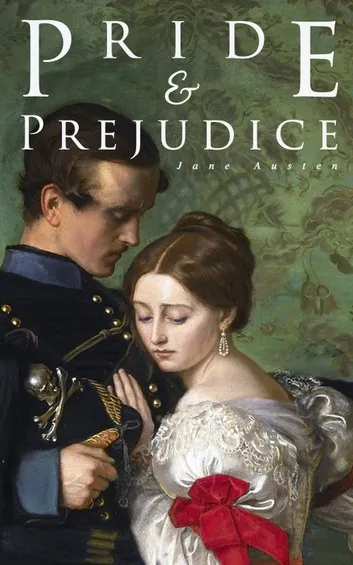
As one of the most famous classic novels, Pride and Prejudice has the power to make even the most heartless soul have hope for love. The love story of Elizabeth Bennet and Mr. Darcy is one of the most heart-warming, Elizabeth’s defiance and resistance to needing a man in her life in a society that deems marriage necessary for a woman’s survival only becomes attractive to Darcy, and he falls in love with her.
Despite society being patriarchal in C18 and marriage being dependant on money and status as opposed to love, the attraction and love that grows between the pair are not to do with money, instead, they see each other from a deeper level, as opposed to the quick and superficial matchmaking that was commonplace in Austen’s era.
Similar to Much Ado About Nothing, Pride and Prejudice explore the idea that love trumps hate. Elizabeth and Darcy’s reluctance to fall in love only makes their eventual marriage even more celebratory for readers. This novel will change your perspective on life because it gives so much hope for love, as it explores the story of two characters living in a society based on money marrying because they love each other, not for financial gain.
5. The Handmaid’s Tale by Margaret Atwood
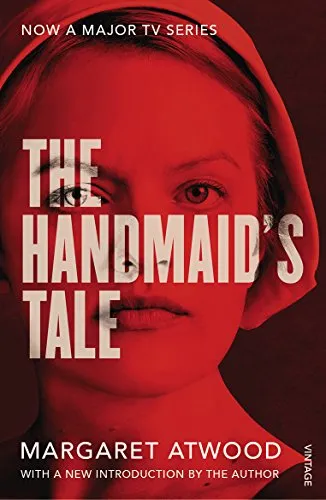
As a dystopic novel, it is unsurprising that there are important life messages within this novel; this coupled with Atwood’s brilliance as an author. Everything within the novel has been taken from somewhere in history and has all been methodically grouped together to create the dystopic society, Gilead.
This, in itself, is a message: that we, as humans, have the capability to create a society as brutal as Gilead because we have done all the things that contributed to the make-up of Gilead, so should thus be careful in how we run society to avoid ending up living somewhere like that.
Essentially, the whole novel is a warning to people to not try and gain control through violence or discrimination. If anyone reading the novel takes a patriarchal stance on life then the message to change their perspective is that society is not able to function having this much control over women and their bodies. In short, it is not a women’s “duty” to reproduce and have babies.
I personally know people who have been judged and defined by their ability, or lack of, to have babies. Being called a “half-woman” for being infertile, or asked “when are you having kids?” emphasizes the still old-school patriarchal values that a woman’s place is in the home, to have and raise children.
Atwood’s creation of the handmaids present fertile women to be machines and baby-makers, and infertile women, if not married to a rich man, to be irrelevant to society, who end up as servants within Gilead, or killed. Thus, reinforcing the patriarchal views that societies held and some, arguably, do still hold.
Written in 1985, Atwood’s clear stance on women’s position in society presents her desire for change amongst society, demonstrating that this oppression of women is unjust and unfair. Whilst it is widely recognized that there have been steps taken to promote more equality among the sexes, contemporary society is still depicted to be patriarchal, as Atwood’s novel is still relevant today if it wasn’t then a hit television show would not have been produced, and a sequel to the novel would not have been written and published in 2019.
6. The Testaments by Margaret Atwood
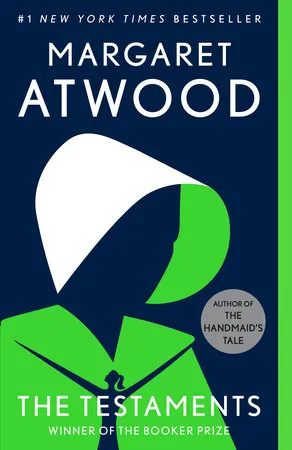
The Testaments is the sequel to The Handmaid’s Tale and will completely change your outlook on one of the characters, Aunt Lydia, it dramatically changed my own personal outlook on her.
In the first novel, she is arguably one of the villains of the novel and is massively disliked by readers. The character delivers twisted biblical messages, and almost uses religion as a bargaining tool to convince the women to obey her, their superior. Moreover, she is cruel to the Handmaids who suffer brutal punishments at the hands of Aunt Lydia.
From all this, she sounds like a classic literary villain. However, the sequel provides a back story to the character, and how she came to be assigned the role she was within Gilead, she had no choice.
The Testaments provide an exceptionally important message to readers: that there is more to someone than what meets the eye, in short, to never judge a book by its cover.
This novel will change your perspective on the character completely, which can lead to a change in your perspective on life too because initially, readers' hatred towards Aunt Lydia is so strong, there is no chance of that changing. However, the new information provided to readers in the sequel is encouraging readers to be kinder and more tolerant towards others and to not rush into judgments on people. People are complicated, and everyone has a past, that in itself deserves recognition.
7. Ariel by Sylvia Plath
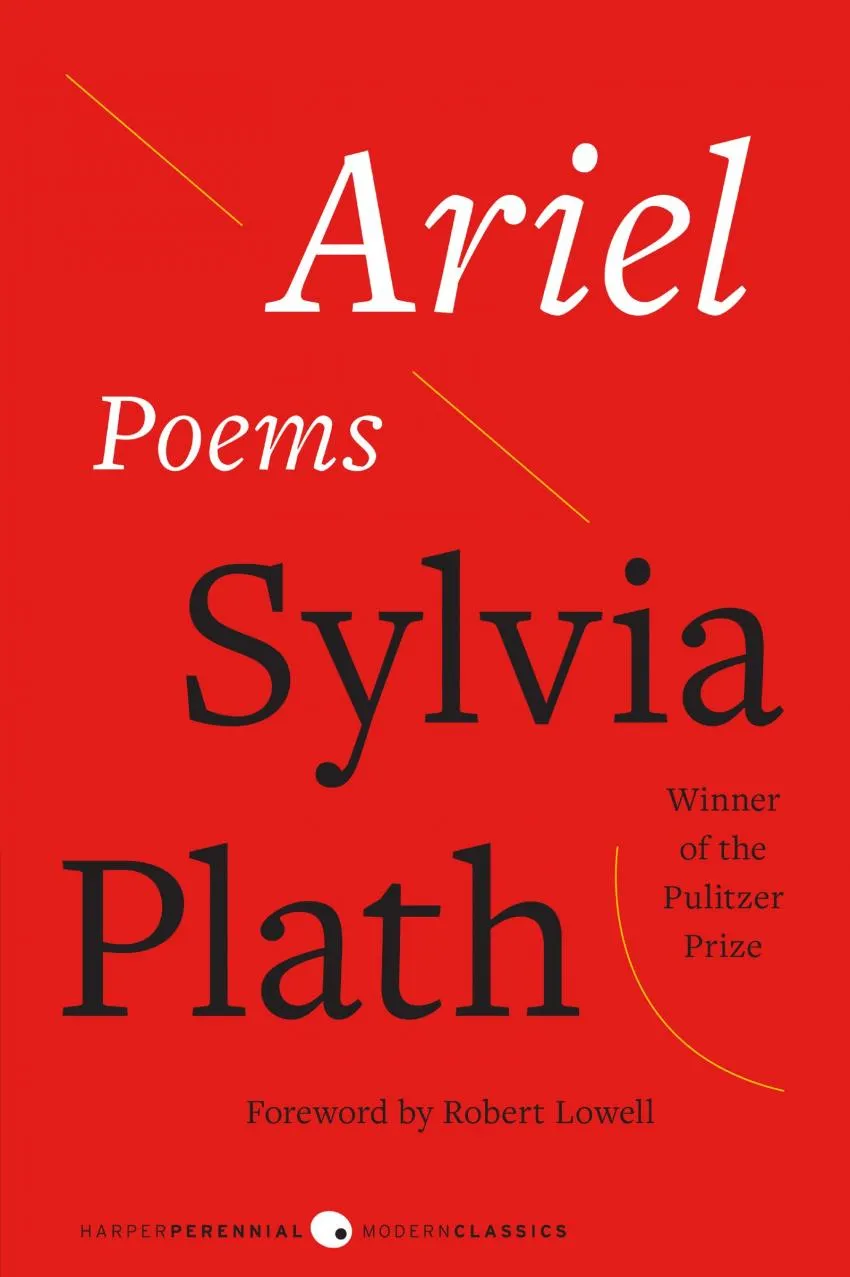
Ariel is a collection of poems as opposed to a novel but the messages conveyed within the poems are so powerful.
Plath struggled with her mental health for a number of years, most specifically she struggled with depression, leading to self-harm and multiple suicide attempts, the third of which did lead to Plath passing away.
Her poems in this collection discuss an array of issues, one of which that directly relates to her mental health battle is the title poem, Ariel. The poem discusses the speaker's journey riding a horse and eventual fall whereby the horse leads to its own downfall, this being representative of Plath’s suicide attempts.
The collection also discusses Plath’s battle with infertility, as she suffered the loss of one of her babies. This is an important and still relevant issue to note because infertility is not “cured” by conceiving other babies. Plath notes her struggles with infertility in her poem Childless Woman as she has lost a baby too, as the speaker did in the poem.
The emotional pain and the battle that comes with infertility should not go unnoticed. As a prominent issue in contemporary society, Plath’s raw and emotional exploration of this in her poem that is over half a century old draws attention to the struggle faced by parents suffering losses, and the fact that Plath writes in such a raw manner does not shy away from the true pain, whereas today’s social media “filter” often does not accurately represent the intensity of these experiences. The fact that this is no different now compared to when Plath was writing again exhibits the prominence of this issue.
Plath’s raw expression in this collection will change your perspective on life because it so overtly expresses the pain of infertility despite conceiving and healthily delivering other babies, and how this can never take the pain of infertility away.
8. The Great Gatsby by F Scott Fitzgerald
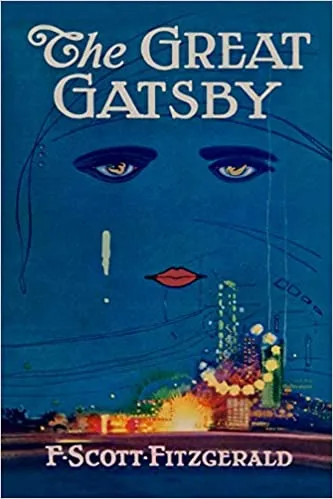
The Great Gatsby is such a powerful novel.
We spend our childhoods working for education to secure a good job and earn good money. Money is still deemed as a sign of success. But The Great Gatsby disputes this, as depicted by Gatsby’s ultimate downfall, despite his possession of a serious amount of money.
He spends his whole adult life working and earning money in order to earn Daisy’s love back. However, whilst he did obtain it, they did not stay together and Gatsby ends up dead.
As such, the perspective that money can buy happiness is ultimately proven wrong in this novel, which makes one question the reason for working to obtain riches. I see Gatsby as more successful than Tom Buchanan because he worked hard for his wealth as opposed to it being handed down to him. However, Fitzgerald presents Tom to be the winner as he wins Daisy and doesn’t die at the end of the novel.
Opinions and Perspectives
These books remind us that looking beneath the surface often reveals unexpected truths.
The enduring relevance of these stories really shows how universal their themes are.
Reading Matilda as an adult made me appreciate its deeper messages even more.
The way these books handle complex themes while remaining accessible is remarkable.
I think what makes these books special is how they reveal new layers each time you read them.
The exploration of power in The Testaments is so nuanced. Nothing is as simple as it seems.
Much Ado About Nothing taught me that love can look different for different people.
These books really show how powerful storytelling can be in shaping our worldview.
What strikes me about The Handmaid's Tale is how it shows society can change gradually then suddenly.
Gatsby's pursuit of wealth to win love feels especially relevant in today's materialistic world.
The way Elizabeth stands up to Lady Catherine in Pride and Prejudice still inspires me.
I appreciate how these books don't offer simple solutions to complex problems.
Shakespeare's ability to mix comedy and tragedy in Measure for Measure feels so true to real life.
Matilda showed me that intelligence and kindness are more important than status or wealth.
The Handmaid's Tale made me pay more attention to small changes in society. Sometimes freedom erodes slowly.
I think what makes Gatsby tragic is how he built his whole life around someone else's approval.
Plath's poetry taught me it's okay to express dark feelings. Sometimes that's what healing requires.
We read Pride and Prejudice in my book club and had such intense discussions about marriage then versus now.
The Testaments completely changed my view of Aunt Lydia too. It's amazing how a different perspective can alter everything.
I love how Much Ado About Nothing balances serious themes with genuine humor.
These books really show how literature can change our understanding of ourselves and others.
The family dynamics in Matilda hit close to home for me. Sometimes the people who should love us don't.
That's such a good point about Gatsby's earned versus Tom's inherited wealth. Really changes how you read their conflict.
I actually found Measure for Measure more relatable than Romeo and Juliet. The moral dilemmas felt more real.
The way Dahl writes about the power of reading really shaped my childhood love of books.
Pride and Prejudice showed me that first impressions aren't always right. Sometimes the people we initially dislike become the most important to us.
I find it fascinating how Atwood took real historical events to create Gilead. Makes it even more chilling.
The raw emotion in Plath's work still feels so current. Mental health struggles haven't changed much in 50 years.
Never thought about how The Great Gatsby connects to modern influencer culture but you're right about the parallels.
I struggle with Shakespeare but your point about Much Ado being accessible makes me want to give it another try.
The part about Miss Honey becoming Matilda's true family always makes me emotional. Sometimes chosen family is the strongest kind.
Reading these as an adult hits different than when we were forced to read them in school.
Measure for Measure taught me that life isn't black and white. Sometimes the best stories live in the grey areas.
Anyone else notice how all these books deal with power dynamics in some way? Whether it's family, society, or relationships.
I see The Handmaid's Tale differently now that I'm older. It's less about dystopian fiction and more about patterns in real history.
The way Matilda found power through knowledge really inspired me as a kid. Still does, honestly.
Plath's poetry about infertility helped me process my own loss. Sometimes art helps us handle what we can't express ourselves.
Interesting take on Much Ado About Nothing. I never considered how Claudio and Hero's rushed relationship contrasts with Beatrice and Benedick's slower development.
The message in Gatsby about the American Dream being corrupt still hits hard today.
My perspective on Aunt Lydia completely changed after reading The Testaments. Shows how important context is when judging others.
Pride and Prejudice gets dismissed as a romance but it's really a sharp critique of social class and gender roles.
Not sure I agree about The Handmaid's Tale being just a warning. I think it's already happening in small ways around us.
The way Roald Dahl wrote about books as escape really resonated with me. I used reading to cope with difficult times in my life too.
I love how Shakespeare mixed tragedy and comedy in Measure for Measure. Life isn't just one thing, it's complicated and messy.
Sylvia Plath's raw honesty about mental health and loss in Ariel was way ahead of its time. We're only now starting to be this open about these topics.
Never thought about The Great Gatsby that way before. Tom's inherited wealth versus Gatsby's self-made fortune is such an interesting contrast.
The part about Aunt Lydia in The Testaments really made me think about how we're quick to judge people without knowing their full story.
I think we sometimes overlook how radical Matilda was for its time. A young girl using education and reading as weapons against adult authority? Pretty powerful stuff.
Reading Pride and Prejudice as a teenager completely shaped my views on relationships. Elizabeth taught me it's okay to have high standards and wait for the right person.
The Great Gatsby's message about wealth not buying happiness feels more relevant than ever in our social media age where everyone's chasing material success.
I actually disagree about Matilda being just a children's book. The themes about intellectual growth and standing up to oppression are pretty deep.
Personally I found Shakespeare really hard to get into at first, but Much Ado About Nothing changed that for me. The humor and wit made it so much more accessible than I expected.
The Handmaid's Tale terrified me because of how realistic it felt. We're already seeing some similar controlling attitudes in today's politics.
I absolutely loved how Matilda showed that family isn't just about blood relations. My closest friend has become like a sister to me and this book really validates those kinds of bonds.
